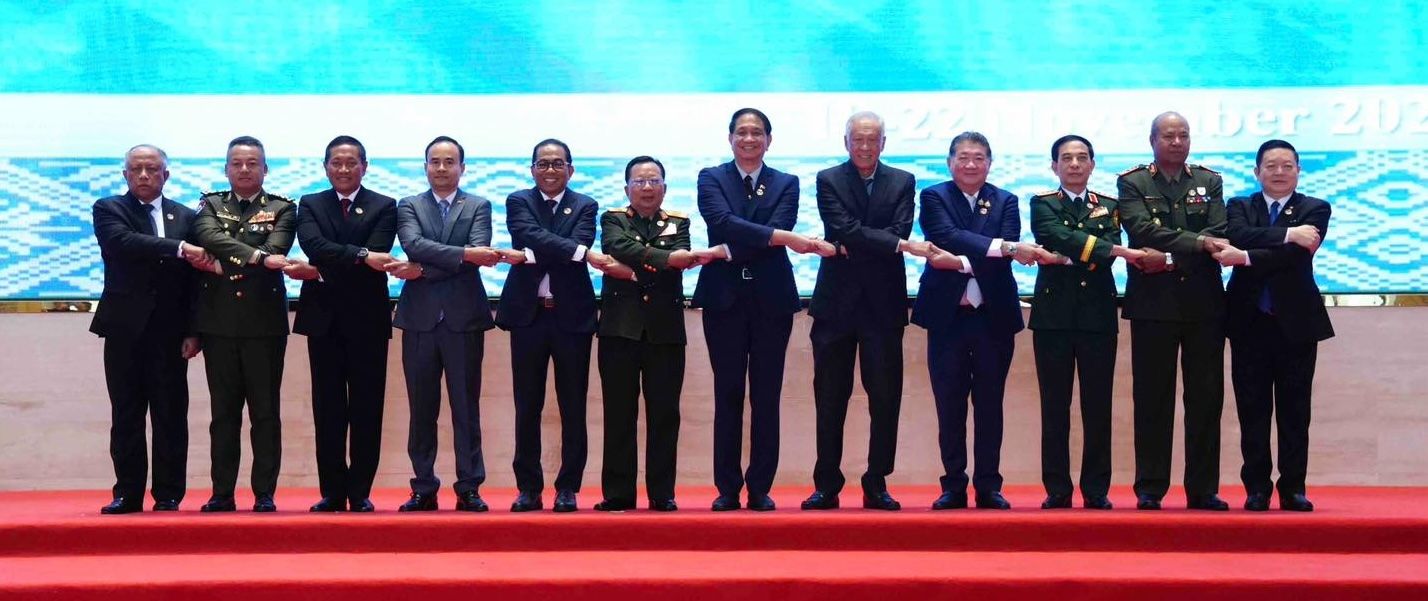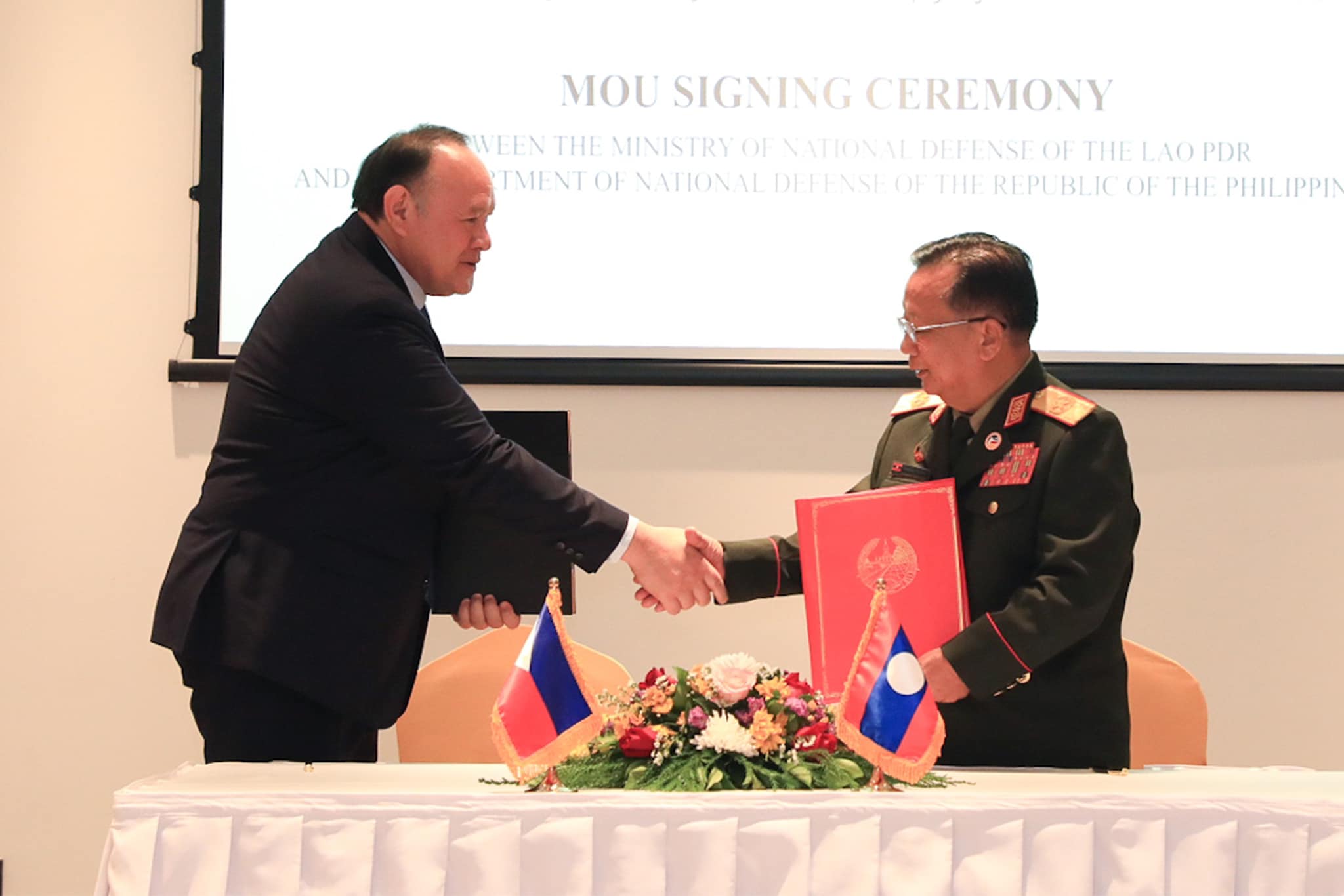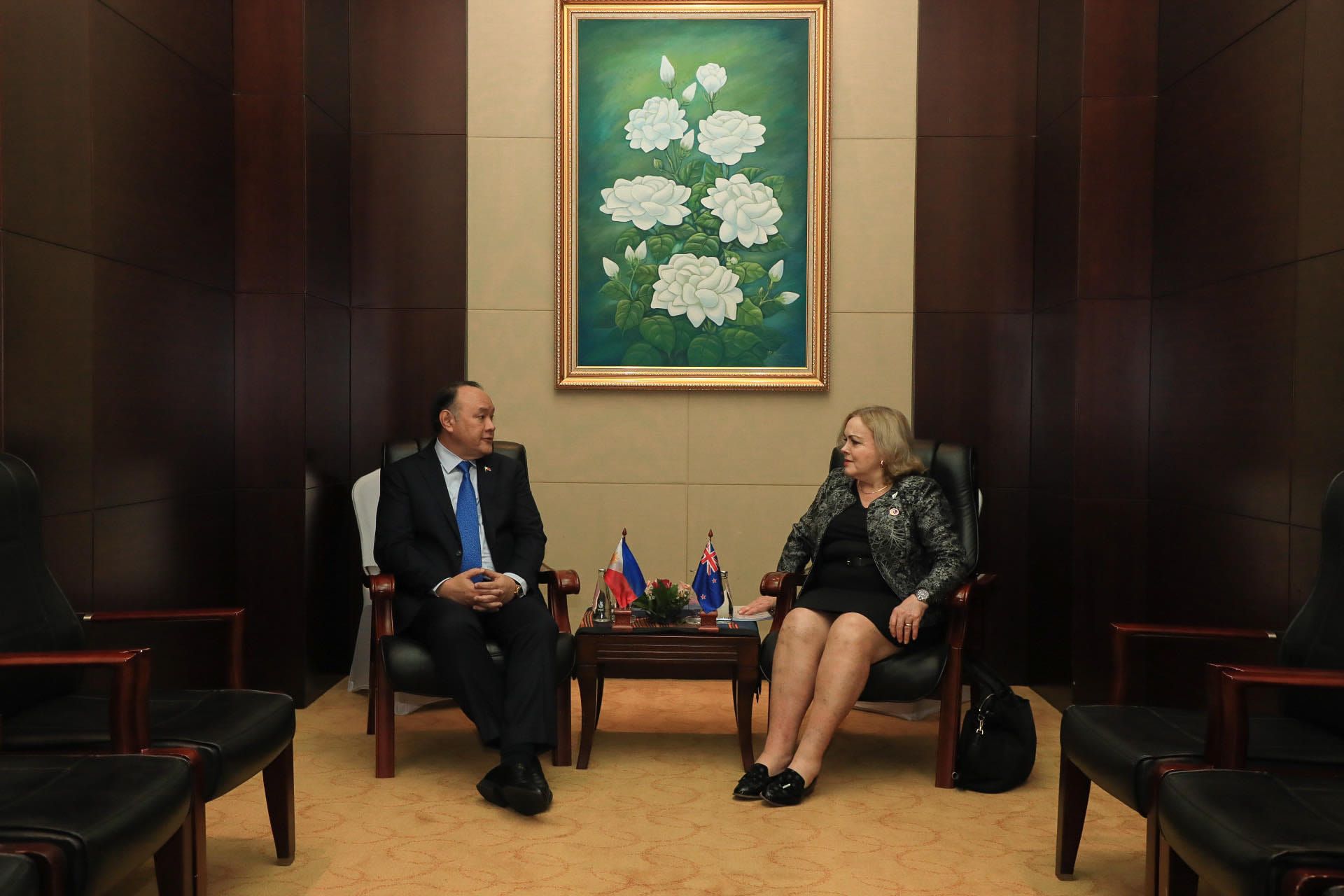ASEAN defense chiefs reiterate need for conclusion of South China Sea code

Defense chiefs from different countries in the Association of Southeast Asian Nations (ASEAN), including the Philippines, again called for the conclusion of the Code of Conduct in the South China Sea (COC).
A joint declaration calling for an “early conclusion” of the regional code was issued by the ASEAN member-states on Thursday, Nov. 21, following the 18th ASEAN Defence Ministers’ Meeting (ADMM) in Vientiane, Laos on Wednesday, Nov. 20.
The ASEAN defense chiefs reiterated the “commitment of all parties to cooperating in a constructive and peaceful manner to maintain the South China Sea as a sea of peace, stability, and prosperity” through the full and effective implementation of the 2002 Declaration on the Conduct of Parties in the South China Sea (DOC).
The ASEAN member-states also seek the “early conclusion of an effective and substantive Code of Conduct in the South China Sea (COC) in accordance with international law, including the 1982 UN Convention on the Law of the Sea (UNCLOS), within a mutually-agreed timeline.”
“[The ASEAN member-states] emphasize the need for the early conclusion of an effective and substantive COC in accordance with international law, including the 1982 UNCLOS while underlining the full and effective implementation of the DOC in the South China Sea in its entirety,” they said.
They also commended existing confidence-building measures such as Code for Unplanned Encounters at Sea, Guidelines for Air Military Encounters, Guidelines for Maritime Interaction, ASEAN Direct Communications Infrastructure and other related activities under the DOC framework “to promote communication, mutual trust and confidence and to reduce tensions and the risk of accidents, misunderstandings and miscalculation in the air and at sea.”
“In addition, the parties are committed to promoting maritime security, safety and freedom of navigation and overflight and creating a conducive environment for the peaceful settlement of disputes in the South China Sea,” they noted.
ASEAN member-states and China, which claims almost the entire South China Sea that overlap with other countries’ claims, have long been engaged in negotiations to establish the COC to promote a peaceful and stable environment in the key waterway.
However, to this date, the parties have yet to finalize the maritime code and tensions continue in contested areas where China asserts its presence, including the West Philippine Sea which is within the 200-nautical mile exclusive economic zone of the Philippines.
In 2002, ASEAN member-states and China signed the DOC in Cambodia, which called for a peaceful resolution of disputes in the South China Sea, the exercise of restraint by involved parties, and cooperation in areas of mutual interest. The DOC reaffirms the principles of the UN Charter, the 1982 UN Convention on the Law of the Sea (UNCLOS), and other international law principles.
The DOC was supposed to set the stage for the discussion and conclusion of a formal and binding COC, which is a set of guidelines that aims to resolve disputes in the region, but efforts have been dragging for several years now.
The theme of the 18th ADMM was “ASEAN: Together for Peace, Security and Resilience”.
PH, 4 other nations vow stronger defense ties
On the sidelines of the ADMM, Department of National Defense (DND) Sec. Gilberto Teodoro Jr. held a multilateral meeting with his counterparts from Australia, Japan, South Korea and United States to forge closer cooperation amid shared security concerns in the South China Sea.
Teodoro, Australian Minister for Defence Industry Pat Conroy, Japanese Minister of Defense Nakatani Gen, Republic of Korea Minister of National Defense Kim Yong-hyun, and US Secretary of Defense Lloyd Austin III met together for the first time to underscore their shared commitment to advance a vision for a free, open, secure, and prosperous Indo-Pacific "where international law and sovereignty are respected."
"The Ministers and Secretaries emphasized the importance of close multilateral cooperation in support of regional security and stability, and underscored the importance of ASEAN centrality and ASEAN-led regional architecture. The leaders highlighted the progress made in strengthening their defense cooperation and reaffirmed their commitment to working together moving forward," a joint readout from the five leaders stated.
Stronger defense ties with Laos, New Zealand
Meanwhile, Teodoro and Laos Deputy Prime Minister and Minister of Defense General Chansamone Chanyalath led the ceremonial signing of a new Memorandum of Understanding (MOU) on Defense Cooperation during a separate bilateral meeting.

The MOU is an avenue for greater collaboration, particularly in areas such as Humanitarian Assistance and Disaster Response (HADR), disaster risk reduction, joint military training, and English language and cultural exchanges, underscoring the commitment of both nations to promoting regional stability, enhancing disaster resilience, and fostering a cooperative ASEAN community.
Teodoro underscored the shared challenges faced by both countries, such as natural disasters, and the potential for mutual learning and collaboration. He emphasized the importance of fostering trust and confidence between their armed forces, describing the cooperation as a step toward “a more fraternal ASEAN.”
For his part, Minister Chanyalath expressed his gratitude for the Philippines’ support, particularly in assisting the Lao Shooting Contingent participating in the 32nd ASEAN Armies Rifle Meeting in Clark, Pampanga, and providing English language training for the Lao People’s Army.
As part of the initiative to deepen bilateral ties, Secretary Teodoro extended an invitation for Minister Chansamone to visit the Philippines to observe military training exercises and explore avenues for enhanced collaboration.

Teodoro also held a bilateral meeting with New Zealand Defense Minister Judith Collins KC to discuss shared security concerns and avenues for collaboration.
Teodoro underscored the importance of a rules-based international order to promote peace and stability in the region. He emphasized the need for collective efforts to address security challenges, particularly those stemming from non-state actors, which he noted are affecting not only the Philippines but other countries as well.
Minister Collins, on the other hand, expressed New Zealand's deep concern over developments in the West Philippine Sea, offering her country’s support to the Philippines. She also highlighted the strong relationship between the two nations and their shared interest in regional security and cooperation.
Both officials acknowledged the growing importance of collaboration in addressing non-traditional security threats, including HADR. Teodoro welcomed engagements in the area, stating that “we need it now more than ever.”